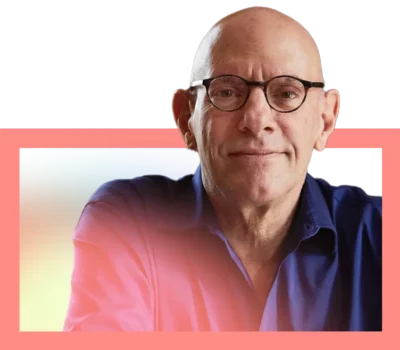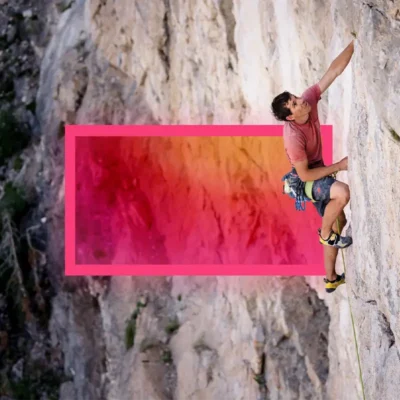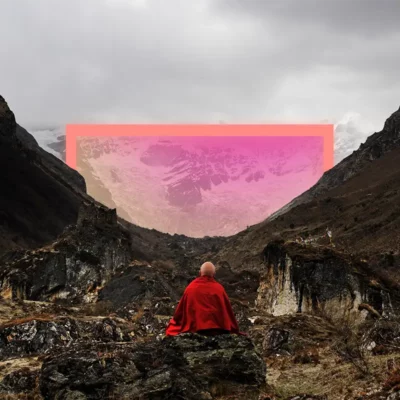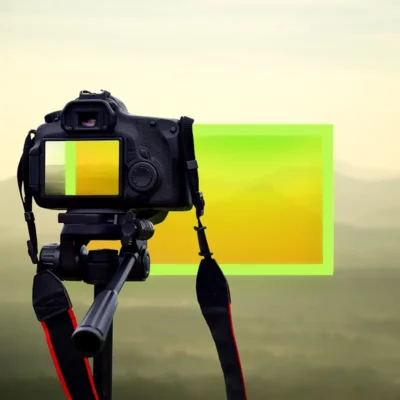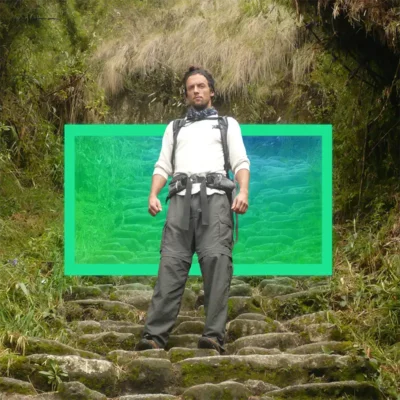On board with my dad
As an author and poet, Mark Nepo has spent decades writing about spirituality and serenity. But his life wasn’t always as calm as it is now. Growing up, Mark feels challenged by the demands of his perfectionist father and struggles to feel seen. Years later, after surviving a battle with cancer, Mark looks back and realizes that watching his father refurbish a boat in their backyard provided one of the most important, surprising lessons of his life.
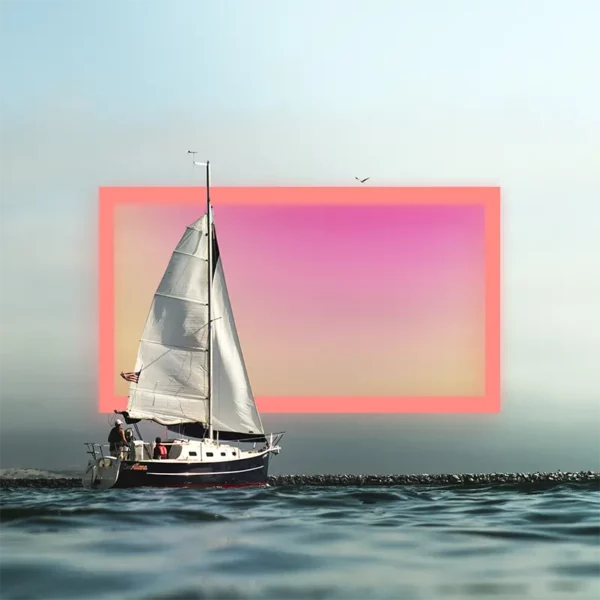
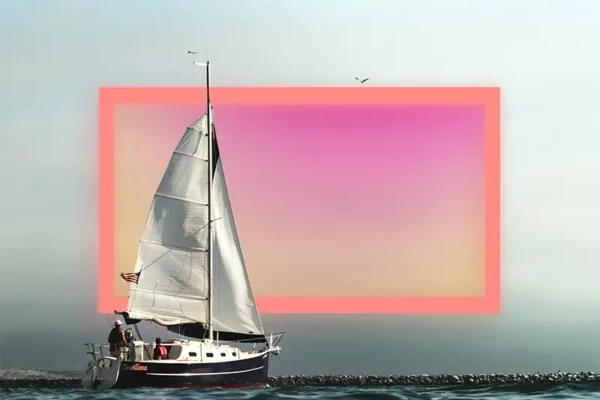
Table of Contents:
Transcript:
On board with my dad
MARK NEPO: Watching the boat grow through his labor is mysterious and compelling. It opens a side of my father I don’t really see anywhere else. He’s expansive. Unguarded. Seeing my father’s unconditional love of work and effort, I’m drawn to him like a magnet. I want to be in this moment with him. I want to feel what he feels.
ROHAN GUNATILLAKE: New York Times bestselling author and poet Mark Nepo has spent decades writing about spirituality and serenity. But his life wasn’t always as calm as it is now. Growing up, Mark felt challenged by the demands of his perfectionist father and struggled to feel seen. Years later, after surviving a battle with cancer, Mark is able to reflect on how watching his father refurbish a boat in their backyard provided one of the most important lessons of his life.
On today’s episode of Meditative Story, Mark shares his journey with his father and their boat, and explores how total immersion in a task can be a key to something larger than ourselves.
In this series, we combine immersive first-person stories, breathtaking music, and mindfulness prompts, so that we may see our lives reflected back to us in other people’s stories. And that can lead to improvements in our own inner lives.
From WaitWhat, this is Meditative Story. I’m Rohan, and I’ll be your guide.
The body relaxed. The body breathing. Your senses open. Your mind open. Meeting the world.
NEPO: I’m in the back seat of our Ford Valiant, driving down Sunrise Highway to Seaford, a small town on the Bay in Long Island, NY. Somewhere near the water, we pull into an unfamiliar backyard. I am seven years old, tall enough to peer out the window at this large wooden boat seemingly asleep on concrete blocks surrounded by weeds.
“This is it,” Dad says as he gets out of the car. He has that glint in his eye. My brother and I throw open the doors and run to the old, double-ended hull that waits in the back of the yard. Mom and Dad slowly come and stand beside us.
“Are you sure about this?” Mom asks doubtfully. The thirty-footer was originally an open rowboat for midshipmen at the Naval Academy in Annapolis, but now, it is rotting. The planks are warped and gray, so worn in spots that it’s almost see-through. I run my little hand along the hull. It’s rough and splintery. Then, we hear a low buzzing. There are hornets nestled in pockets of the wood.
But as Dad walks around the boat, his smile never fades. He doesn’t see how dilapidated it is; he only sees what it will become. This is my father in his creative strength: having a vision and finding a way to bring it into being.
He buys the boat for $150.
Three years later, I step out the back door of our house in Massapequa Park, New York. I’m careful to close the screen door quietly. I’m 10 years old now, and don’t want to disturb Dad who is working away on the boat, now up on blocks in our backyard. Near the row of hostas planted along the back fence, he leans over the new rail he’s put in place, a level in his hand. He’s sweating, and his brow is furrowed in concentration.
It’s hard to imagine this is the same rotting hull he bought three years ago. Now, it has a deck, a cabin, and newly replaced planks. The redesigned boat is big enough for 8-10 people to take out for a day, or to sleep 4 overnight. During the past few years, our yard has become a symphony of hammering, sawing, and screwing.
My dad dives wholeheartedly into projects, always working his way into something larger than himself.
Today, my brother and I are asked to help with the sanding. Holding my little square of sandpaper, I scurry under the arc of the boat. I rub the sandpaper in circular motions, slowly smoothing the surface of the wood. The sawdust covers my hair and forearms. It’s so satisfying to watch the roughness become smooth. I start to feel completely immersed in the task, and feel closer to Dad for it.
Watching the boat grow through his labor is mysterious and compelling. It opens a side of my father I don’t really see anywhere else. Out here, he’s expansive. Unguarded. As a boy, I am very inquisitive and wide-eyed, eager to watch and learn. Seeing my father’s unstoppable love of work and effort, I’m drawn to him like a magnet. I want to be in this moment with him. I want to feel what he feels.
In our basement, Dad calls me over to show me how to chisel a piece of wood. His motions are strong and sure, and he makes clean cuts. He hands me the chisel and goes back to his work. The chisel feels cold and unwieldy in my palm. I try to mimic his movements, but I can’t quite do it. Dad grows impatient and short with me. ”Pay attention! Use your fingertips! Don’t be stupid!” I shut down completely. I go quiet. He’s such a perfectionist when it comes to any of his projects.
This type of interaction feels very familiar at this point. He and my mom are always pushing me to be better, to work harder than everybody else. They’re first generation Americans. We have family who died in the holocaust. They grew up in the Great Depression. They are very concerned with survival. That unguarded quality I see in Dad while working on his boat is a rarity. He’s usually more tense and exacting. Being sensitive, I don’t respond well to their yelling. It honestly feels disrespectful. I seldom feel at ease around them.
I put down the chisel and quietly leave the basement. In some ways, I never return. Dad’s judgment leaves me no room to explore myself. Over the years, my repeated attempts to express my true identity and my passions are slapped down and swatted away. He’s trying to teach me to be a little version of him. But that’s not teaching. I feel rejected and isolated.
The first summer that the boat is in the water, the early morning sun reflects off the sea, making the waves magical. We’re not far off the coast of Long Island. And I’m in awe to be on the water in something my Dad built.
He encourages me to sit in the bow of the boat. I prop myself up and throw my legs over the side, holding onto the turnbuckle of the jib. My feet dangle over the edge as the water laps against the hull. The boat cutting through the water sprays up on my face. There’s a steady breeze that cups my ears.
I breathe in the salt air. Gulls cry out in the distance. This is where I feel at peace. All the conflict and confusion and anger of the house is dispersed out here. There is more space, more possibility for me to be me. As a child, I learn to close myself off from the harshness of my parents. Over time, this creates a distance between me and my family. I learn to protect my own decisions. I learn to protect my intimate reactions to the world.
But from the bow of the boat, I watch mom and dad in their pride and contentment. He deftly weaves the 8-ton mass of wood and iron through the water. He named the boat after her: Renee. My mom is so pleased with this. Sometimes the boat and where it takes us feels more of a home than home.
GUNATILLAKE: Sensations of pleasure. And sensations of being at home, of feeling at home. Taking as much time as you need, notice whatever pleasant feelings are here for you right now, and let your whole mind be guided into them.
NEPO: After he’s finished refurbishing the boat, Dad pours his attention into carving model ships. He gets actual blueprints for sailing ships from the 1800s and sets out building them to scale. The basement becomes his intricate workshop.
I’m 12 years old now, and I perch myself on the fourth step of the see-through basement stairs. The air is musty and smells like wood and glue. Through the open slats, I watch Dad work. In his right hand, he holds a pair of tweezers with dexterity and grace. With careful precision, he pulls a thin wire through a tiny deadeye, a button-like wooden piece.
I have never seen anyone so immersed in what they’re doing. He gives himself over to every detail so fully that he is suddenly in the lineage of anyone who’s ever built a boat. In this moment, he reveals to me the secret life of detail. His judgment of me, his sudden rejections, fade into the background. His immersion demonstrates wholeheartedness. It‘s the holiest thing about him.I want more of what my father experiences in that moment. I want to go where he goes when so immersed.
All of my father’s greatest lessons come when he isn’t aware that I’m watching. When he’s fully absorbed in his task of creation, he is so vital and alive. I don’t know yet that this same call to create will take hold of my life as well, through the building of books, poems, images, and metaphors. For now, I just watch. Aware that I want to take part in this experience of oneness.
It’s months later, and we’re out on the boat again, this time in a thick fog that envelops us, the mist coating the deck. We have to be careful not to slip.
Dad shouts to me and my brother: “One hand for the boat, one hand for yourself.” In bad weather, you must always make sure you’re holding onto something. Or the sea will take you.
The wind starts to whip, and the halyards and ropes slap against the mast in an unnerving rhythm.
Dad puts me on the tiller, the arm that steers the rudder at the stern of the boat. I’m so happy that he wants me to do this. But the task is quickly on me. Though I can’t see farther than a few yards beyond the bow, I have to keep us on course. I focus completely on the directional compass that’s strapped into the cockpit. To my surprise, the compass is never still, always pointing a little one way, then the other. Even when the boat is moving in a steady direction, I need to constantly adjust the tiller.
This steerage teaches me the work of finding our way is never finished. We keep having to steer a little to the left and a little to the right to stay on course. We have to remain fully immersed in the moment to find our way. And it’s not about being perfect or doing it right like Dad might say when he’s looking over my shoulder, judging my progress. It’s a process of always having to return to what matters in order to stay on course.
Decades later, I’m in a hotel bed that’s stiff and uncomfortable. I take a pillow and slide it under my shoulder, trying to relieve the stress on my body. I’m 31, and I’ve recently been diagnosed with a rare form of lymphoma. My condition has quickly worsened. A tumor grew in my skull and then in my back, and I had to have a rib removed. Now, I’ve traveled from my home in Albany to New York City to have my first chemo treatment, which has been horribly botched. I’m only given oral medicine that I can’t keep down. And now I’m struggling in this Holiday Inn on Long Island where I’m enduring the aftermath of that treatment.
I pick up the phone by the bed to call my parents. Over the years, the tension of my childhood has escalated. My decision to become a poet and embrace the more spiritual aspects of life conflicted with my parents’ plans and expectations. We keep drifting farther apart. We seldom speak about anything important. But they’re only 30 minutes away, and I need them here. I need their support.
But they don’t come. They don’t offer to help. They retreat.
Laying on my back on the unyielding hotel bed, I don’t even have the energy to be angry at my parents. It just feels like something has been severed between us. We’re like two boats at sea, and the rope tying us together has been cut.
Once back home, I realize how frightened they are, how deeply scared of what’s happening, but the pain of this abandonment rocks me to my core. I write them a letter expressing how I feel, admitting that I am sure I played a part in whatever has led to our estrangement, but that I need them to be honest and open with me. They say they have no idea what I’m talking about. The more I try, the more they turn away. The distance and isolation I felt from my family as a child resurfaces, having evolved and grown over time. I don’t feel heard or seen.
Over time, my recovery improves, thankfully. I land back in life and feel grateful just to be here. I now rely on friends and other loved ones to be my family, and I have no contact with my parents — none at all.
It takes 15 years for me to reach out to my dad. After a tender but awkward reconnection, we arrange to meet. I pick him up, and we drive to Lindenhurst, where we sit at the docks and watch the sea. I look at this very old man who still has that glint in his eye, and I realize that I have never stopped loving him, no matter where life has taken us. He quakes a bit and stammers. I need to help him from the car, so we can stand closer to the water that has always held us. It is a simple day. A day I will never forget.
GUNATILLAKE: This is such a beautiful scene. Let’s sit with it for a breath or three, and if there is anyone in your life whose heart you feel needs to reconnect with yours, give yourself over to that completely.
NEPO: At the age of 61, I get a phone call, and on the other end is a voice I haven’t heard in 17 years. It is my mother calling to tell me that Dad has had a stroke. My brother, who has always stayed close to them, is there caring for them every step of the way.
Quickly, I’m on the first flight back to New York and driving in a rental car back to another hospital on Long Island.
Now that my dad has had a stroke, I want to see him as much as I can. For over a year, I visit him in the hospital. It all becomes too familiar: the nests of wires, the machines beeping, the bed pans clanging, the hum of the suspended TVs. Today it’s as noisy as ever.
And there, in the center of so much activity, is my father, looking so weary. He doesn’t speak anymore. And today, he gazes out the window, suddenly fixed intently on something out of view, something beyond what anyone in the room can see.
All at once, he grabs my hand tightly. His skin is papery and worn. But his look is fierce, a look of intense penetration. In that focused glimpse, I understand. I know that what he’s looking at is eternity. I know he is turning to me, finally, because he knows that I know what this feels like. I know what it means to be close to the sea of death.
I squeeze his hand gently and say, “I know, Dad. It’s okay. I know.”
After everything we’ve been through — the inspiring and confusing years of my youth, my struggle through my cancer, and the pain of their estrangement — we have, in this moment, the most profound conversation in our lifetime, without any words.
He squeezes my hand in return and gently lets go.
A few months pass. Now, I am sitting in a chair beside my father in the hospital. In one hand, I hold a cup of applesauce. In the other, a spoon.
I dip the spoon in the cup, and raise it to my father’s stubbled mouth. He reaches out like an old bird, his beak trembling open. I am extra careful not to disturb his breathing, so I go slowly, slipping the spoon between his lips, trying not to hit his teeth. I take a napkin from my lap and dab the edges of his mouth.
It is beautiful and sad and bittersweet. As I give myself to him completely, the noises of the hospital fade. Dad and I are in a deeper place. And I am as immersed in this moment of giving him applesauce as he was when building that model sailboat with his tweezers. I am present with my whole heart, fully immersed in our task together. There’s nothing else I want to do in this life but feed him that spoon of applesauce as long as I can, as long as he wants.
In the slowness of my tears, the moment feels so whole, so complete.
I have given myself over to this opening so completely that, without realizing it, I have stumbled into the moment of every adult child who has ever fed a dying parent. Mysteriously, I am not alone. I’m now in the lineage of lasting care, and this moment is uplifting, the way the depth of the ocean lifts all its waves.
Ever since that moment, I have reflected on what it means to immerse ourselves and how doing so contributes to the fullness of our being. And I have found that when I strive for excellence, I might succeed or fail. But when I immerse myself, I am blessed with the experience of oneness.
Regardless of where we think we’re going or what our broader hopes and dreams might be, it’s those moments where we give ourselves over wholeheartedly — working on a boat, threading a deadeye, crafting a poem, committing ourselves to care for a loved one, or a child — these moments open up doorways to something larger than ourselves. And judgment always has a way of putting up walls and isolating us from those closest to us. But my journey with my father has shown me that unconditional immersion is the key to all connection, the key to all that is sacred.
And after all this time, I am still in love with the sea.
Rohan’s closing meditation
GUNATILLAKE: There is so much in Mark’s story — so much richness, so much tenderness, wisdom. And the element I’d like us to explore in our closing meditation together is that of immersion.
Mark watches his father working on his model wooden boats, and caught in the detail of the craft, he is a different person — wholehearted.
In the meditation tradition that I’m trained in, the word for heart and mind is actually the same, so instead of saying whole-hearted, you could say whole-minded.
When working with his tools and with the wood, that is what Mark’s father is. His hands, his body, his attention, his intention — all aligned, all united. Wholehearted, whole-minded.
So let’s try a bit of that, heart-mind united.
Letting the body be however it is. And notice how you’ve already settled into a comfortable position. The body already knowing what it needs.
Now, become aware of your whole body as it is. No need to pay attention to any particular part. Instead, your awareness flowing out to fill the container of the body. Aware of the whole body.
This is a bit like holding the wooden ship with our attention, so we now need to bring in the tool to truly bring immersion.
So, taking as much time as you need to, notice where in the body you can most feel the breath — its movements, its sensations.
This is likely to be in the chest or in the belly as they move up and down. Taking some time to feel the breath — wherever it is.
Now that you’ve found the breath, invite it out into the whole of the body. The breath filling the container of the body, just as your awareness did earlier.
Instead of feeling the movements of breathing in one particular place, making the decision to feel them in the whole of the body — from the top of your head to the tips of your toes.
Feeling the breath everywhere. Letting the breath be everywhere. Whole body breathing. Body and mind united.
Inviting immersion. Inviting absorption.
Waves of awareness, moving through us.
The calm silent power of a man and his father holding hands.
Thank you Mark. And thank you.
We’d love to hear your personal reflections from Mark’s episode. You can find us on all your social media platforms through our handle at meditativestory, Or you can email us at: [email protected].

